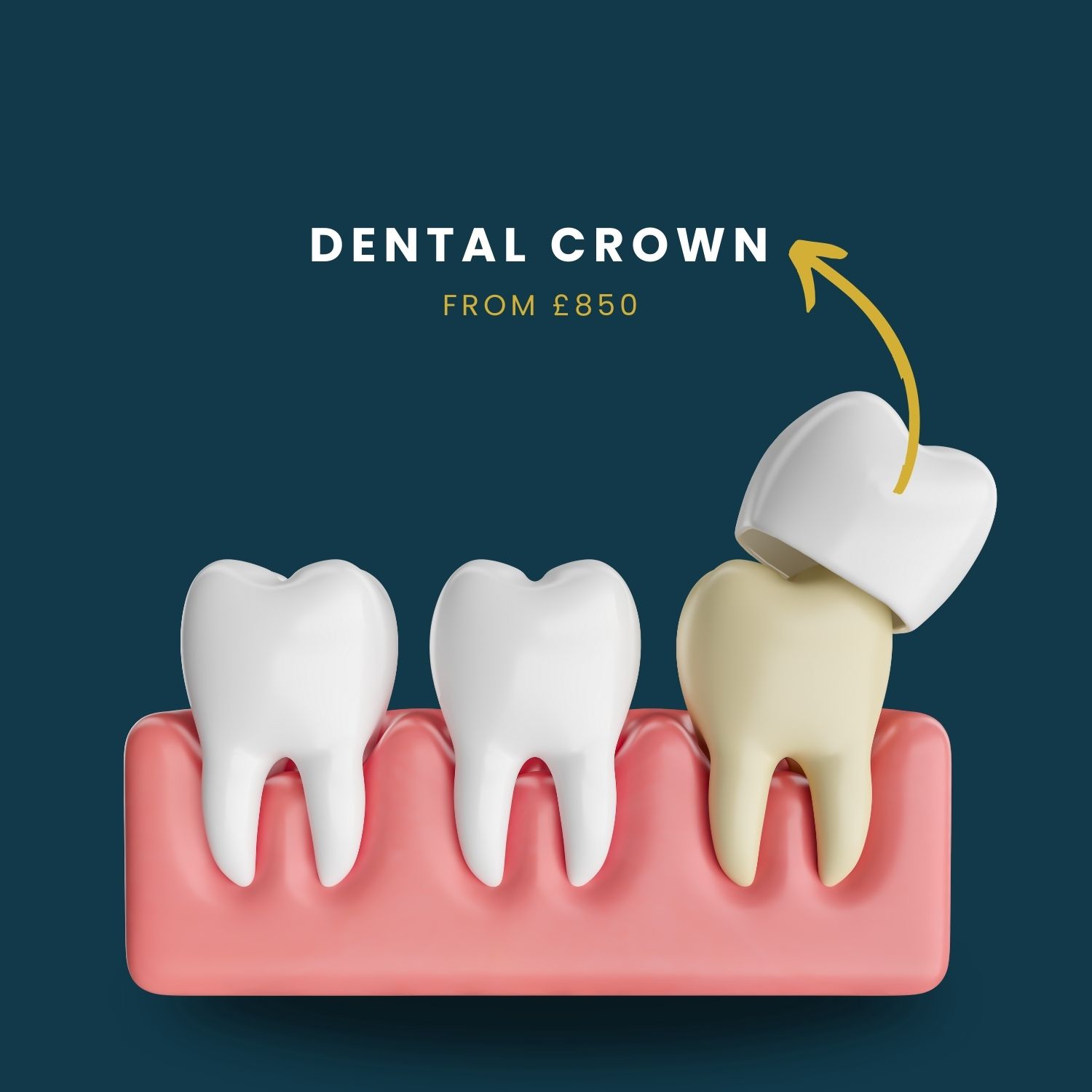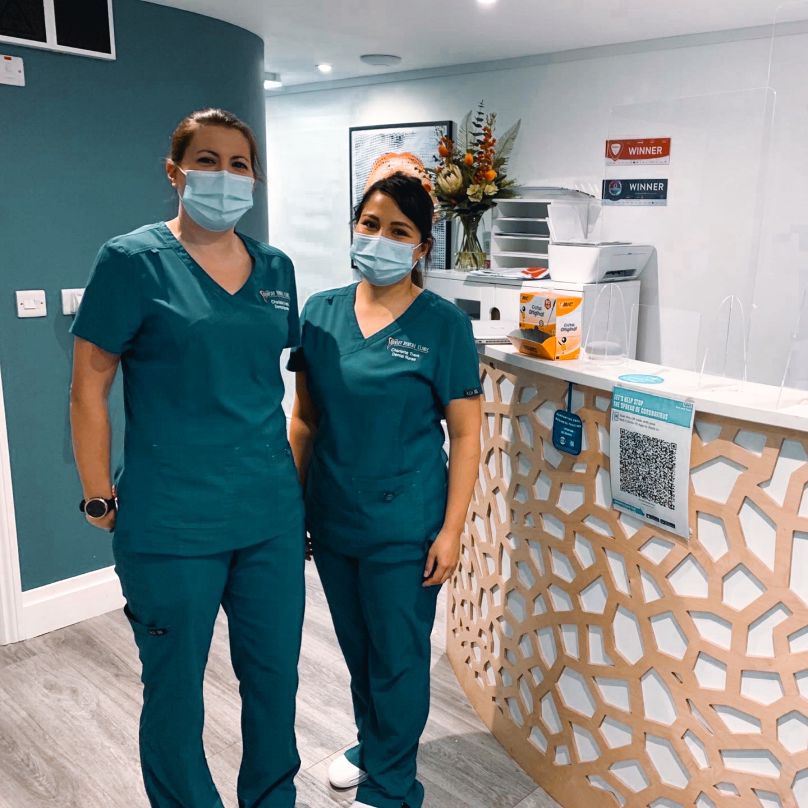Are you new to the area or looking to switch dental practices? We’re one of the best private dentists in town.
Book a check-up, hygiene appointment, consultation, or emergency treatment online and automatically register.
Need an urgent appointment to resolve a specific problem or tooth pain instead of a dental check-up?
If you’ve been recommended a dental crown, chances are, you’ll definitely need one.
Typically used as a follow-up treatment after a root canal or a dental implant and in cases of severe decay, dental crowns are tooth-shaped crowns placed on top of the affected tooth to restore its shape, size, and strength.
The modern crowns of today also improve the process, where patients can avoid gooey impressions and longer wait times, as many modern dental crowns are available the same day using special milling machines we have on-site. Plus, they’re more aesthetic, no longer featuring dark, metallic lines near the gum.
Our ceramists also offer handcrafted dental crowns, which are fabricated from high-quality, durable porcelain and designed to perfectly match the rest of your smile.

There are various kinds of dental crowns, which use different materials, all of which are designed for use on specific teeth and are priced differently. For example, porcelain crowns, which are better-looking cost more than metal crowns, which are typically priced around £250. At our clinic in Dorset, we only offer natural-looking crowns, whether they’re placed on rear teeth or visible teeth without comprising on strength or durability. With our crowns costing from £850, patients can choose to pay with 0% dental finance, which means they can pay £70.83 per month with no additional interest charged.
How much is a crown on the NHS? Dental crowns on the NHS are a Band 3 treatment, priced from £319.10 and will typically use metal crowns for molars. Or porcelain-fused to metal crowns for visible teeth.

How long a dental crown lasts will depend on the type of crown you have fitted. Generally, the average lifespan for a dental crown is from 5-15 years.
Dental crowns come in various types like:
Certain types of crowns will be for front teeth, rear teeth, or able to be used on both.
Even though we have to make changes to your tooth structure to place a crown, the process is not painful as the dentist anaesthetises the area. Once the anaesthesia does wear off, patients can expect to experience a certain level of discomfort or tooth sensitivity, which you’ll typically recover from over the next few days.
Dental crowns are irreversible, this is because natural tooth enamel is removed to fit the crown, which means you’ll always have to have a dental crown and might experience tooth sensitivity.
Also, if crowns are not planned for and positioned correctly, they can trap bacteria inside, which can lead to tooth decay or cause gum irritation.
Dental crowns can be placed on any tooth, including the front teeth (incisors and canines) and rear teeth (molars and premolars).
Just tell us a little about your main concerns and we will find the right treatment to suit your needs
Book Appointment